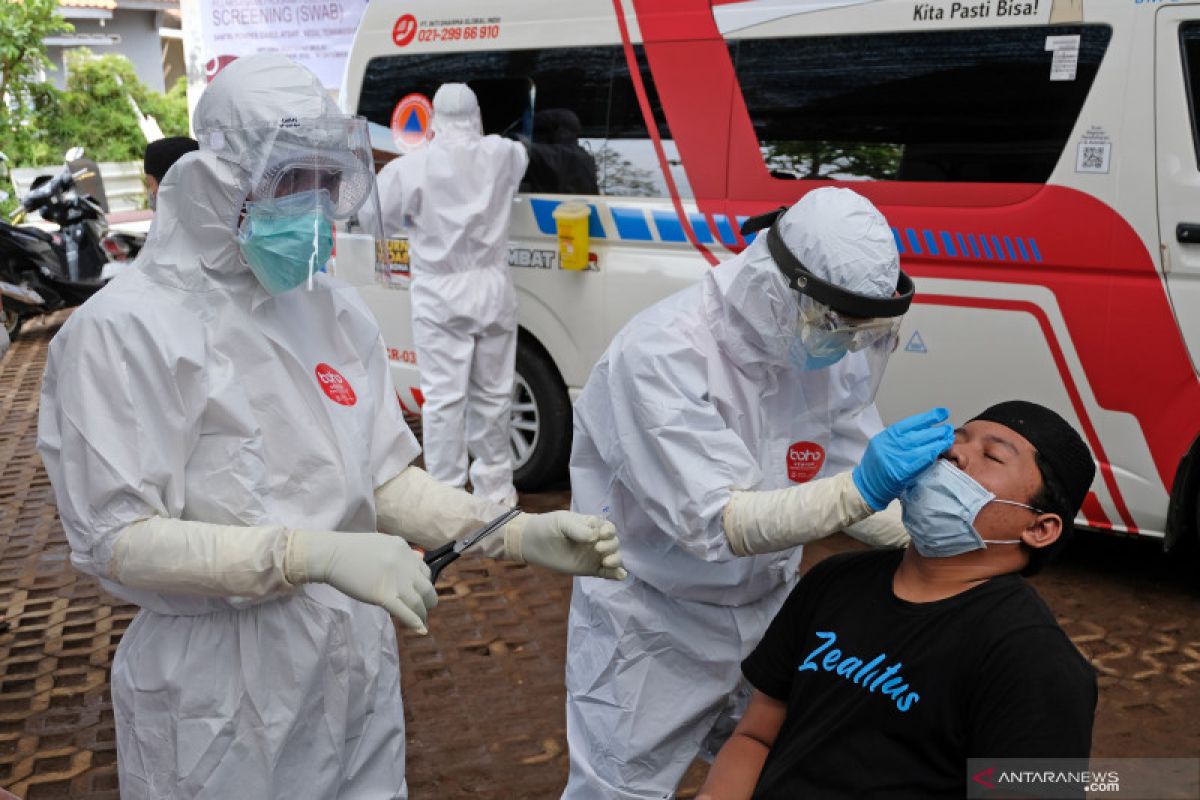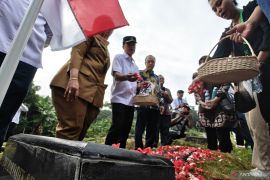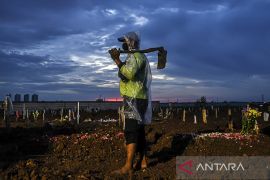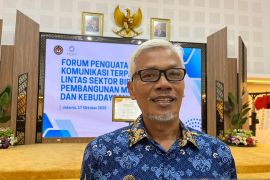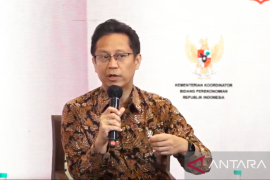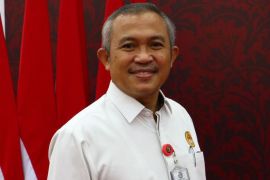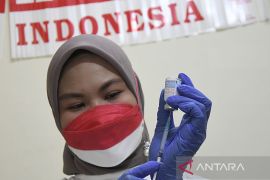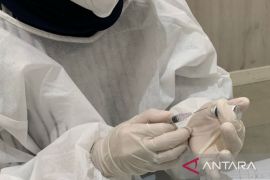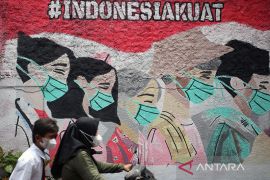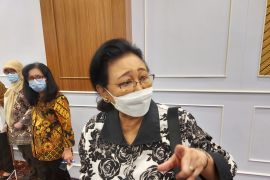We are currently conducting a more extensive clinical trial at various hospitals. If the level of accuracy is high, close to 100 percent, then GeNose can be a screening solution that will reduce dependence on PCR testsJakarta (ANTARA) - Seven months since the government's announcement of Indonesia's first two cases of the coronavirus disease (COVID-19) in March, it has yet to show signs of abating soon, apparent from the continued increase in positive cases.
As of Oct 19, Indonesia had recorded 361,867 confirmed COVID-19 cases, with 285,324 patients recovering from the virus and 12,511 succumbing to it.
Testing, tracing, and treatment, including isolation, are the main cornerstones to contain the spread of COVID-19.
Coordinating Minister for Maritime Affairs and Investment Luhut Binsar Pandjaitan accentuated the criticality of testing and tracking COVID-19 cases whilst awaiting for the vaccine to arrive in November.
"We are currently preparing COVID-19 vaccines. We are optimistic of receiving it in November 2020," Pandjaitan, concurrently deputy chair of the Committee on Policy for COVID-19 Handling and National Economic Recovery, remarked during a virtual coordination meeting on targeted testing and tracing of COVID-19 in Jabodetabek (Greater Jakarta) and Bali.
However, these measures still fall short in Indonesia, principally owing to the limited testing capacity and insufficient number of COVID-19 tracers.
The government's COVID-19 spokesman, Wiku Adisasmito, attributed the limited number of tracers, difficulties in reaching out to all contacts due to Indonesia's vast and scattered regions, as well as the persistent stigma attached to COVID-19 as being the key reasons.
Adisasmito pointed to COVID-19 testing in Indonesia reaching 70.13 percent of the World Health Organization (WHO) benchmark of one per one thousand people per week.
To meet the WHO standard, Indonesia should conduct COVID-19 testing on 267 thousand people per week, or based on its 268-million population, the country will require to conduct testing on some 38 thousand people daily.
The gap between suspected cases in Indonesia and people tested remains wide, thereby necessitating to boost laboratory capacity to ensure testing of all suspected cases, according to WHO’s report.
GeNose and RT-LAMP
Reverse Transcriptase-Polymerase Chain Reaction (RT-PCR), until now, is the only standard COVID-19 testing recognized by the WHO based on its high accuracy. The test that takes some six hours to two days to obtain the result can only be conducted in biosecurity level-2 (BSL-2) labs.
Indonesia currently has 376 laboratories, with a combined testing capacity of some 40 thousand specimens a day.
Rapid antibody test is also widely conducted in Indonesia as a requisite to travel or to partake in certain activities.
However, the WHO Indonesia Office pointed out that the agency did not recommend the COVID-19 rapid antibody test as a requirement to travel, citing the test’s low accuracy level and fearing that a nonreactive result could provide a false sense of security.
According to the Association of Indonesia's Clinical Pathology and Laboratory Medicine specialists (PDS PatKLIn), several rapid antibody test brands used in the country had below 50-percent sensitivity and specificity.
The rapid antibody test detects antibody response to the COVID-19 virus that most patients develop only in the second week after the onset of symptoms, leaving the potential for a false negative.
The Health Ministry has also made preparations for introducing nationwide the antigen-detecting rapid diagnostic tests (AgRDTs), with sensitivity varying between 34 and 80 percent.
At a recent meeting with President Joko Widodo, Research and Technology Minister/Head of the National Research and Innovation Agency Bambang Brodjonegoro had reported on the innovation to support testing, tracing, and treatment (3T) of COVID-19.
Brodjonegoro announced two innovations: GeNose, developed by the Gadjah Mada University and RT-LAMP, developed by the Indonesian Institute of Sciences (LIPI).
The two domestic innovations are estimated to serve as solutions to lower dependence on PCR tests and for improving screening, the minister stated.
Brodjonegoro explained that GeNose was designed to detect SARS-CoV-2 via the subject’s breath while also pointing out that the tool was cheaper and more accurate.
"This approach can result in faster screening and detection in less than two minutes," he stated.
Brodjonegoro noted that the first phase of clinical trials for GeNose had been conducted at a hospital in Yogyakarta, and the accuracy rate as compared to that of the PCR test reached 97 percent.
"We are currently conducting a more extensive clinical trial at various hospitals. If the level of accuracy is high, close to 100 percent, then GeNose can be a screening solution that will reduce dependence on PCR tests," he expounded.
"GeNose" works to instantly and accurately detect Volatile Organic Compound (VOC), formed due to the COVID-19 infection that spreads through a person's breath.
People's breathing is monitored through sensors, and later, the data is processed with the help of artificial intelligence for its detection results. Despite the elements of speed and accuracy, "GeNose" is designed to be highly convenient to be operated by someone independently and efficiently.
According to the GeNose Research Team, one GeNose unit, estimated to cost some Rp40 million, can be used for 100 thousand inspections.
The RT-LAMP testing technology is developed in the form of a rapid swab test.
"In comparison to a swab test, which usually takes a long time and requires a laboratory, the (RT-LAMP test) can be conducted in less than an hour and without the need for a BSL-2 laboratory," the minister stated.
The RT-LAMP technology is also much more inexpensive than the current tools, according to the minister.
"Its level of accuracy is very accountable," he noted.
EDITED BY INE
Related news: Avert spike in COVID-19 cases over five-day-long holidays: Jokowi
Related news: Indonesia keen to join COVAX Initiative
Editor: Fardah Assegaf
Copyright © ANTARA 2020
